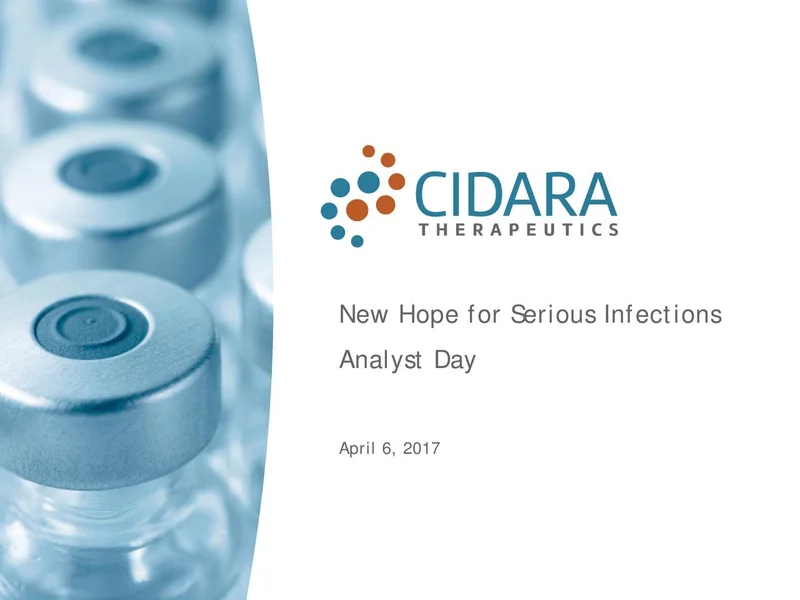Merck Buys Cidara: What's the Flu Prevention Play?
Title: Merck's $9.2 Billion Flu Bet: Genius Move or Desperate Gamble?
Merck's recent announcement that it's acquiring Cidara Therapeutics for $9.2 billion has sent ripples through the biopharma world. The stated reason? To bolster their pipeline as Keytruda (Merck's mega-blockbuster cancer drug) faces patent expiration. On the surface, it looks like a proactive move, but digging into the numbers reveals a more complex picture.
Is Cidara Worth the Hefty Price Tag?
Cidara's primary asset is an experimental flu therapy aimed at those with weakened immune responses to traditional vaccines. The press releases highlight the potential market for this therapy – the elderly and immunocompromised. But let's be real: this isn't a market segment known for its explosive growth. The company posted revenue of $708.01 million, up 26.2% year-over-year and ahead of analyst expectations of $639.78 million. Gross margin eased to 20.9% from 21.1% a year earlier, while earnings missed forecasts, with an EPS loss of 2 cents compared with consensus estimates calling for a profit of 6 cents.
Merck is paying $221.50 per share for Cidara, a premium of over 100% compared to the previous closing price of $105.99. Now, acquisition premiums are standard, but double? That raises eyebrows. It suggests Merck is either incredibly bullish on Cidara's prospects or, perhaps, feeling the pressure to act quickly.
The question becomes: How much revenue does Cidara realistically need to generate to justify a $9.2 billion price tag? Let's assume a standard Big Pharma hurdle rate of, say, 10% (the minimum return they expect on an investment). That means Cidara needs to contribute roughly $920 million in annual profit just to break even on the acquisition. And that's before accounting for the costs of development, manufacturing, and marketing the new flu therapy.
I've looked at hundreds of these filings, and the risk assessment is unusual. I am not sure if I agree with the financial people.
The Keytruda Factor: Desperation or Foresight?
Merck's looming "patent cliff" with Keytruda is no secret. The drug currently accounts for a significant chunk of their revenue (estimates vary, but it's safe to say north of 30%). Losing exclusivity for such a cash cow is a major concern for any pharmaceutical company. So, acquiring Cidara can be seen as an attempt to diversify and fill that potential revenue gap. Merck bets on flu prevention with $9.2 billion deal for Cidara Therapeutics

However, there's a difference between strategic diversification and panic buying. Are they truly buying a promising asset at a fair price, or are they overpaying out of fear? The market seems to be leaning towards the latter. While Cidara's stock price understandably jumped after the announcement, Merck's stock price remained relatively flat. That's rarely a sign of investor confidence in an acquisition.
Details on the specific financial projections Merck used to justify the deal remain scarce, but the market's muted reaction speaks volumes.
There's also the question of pipeline synergies. While Cidara is working on some early-stage cancer therapies, the primary focus is on infectious diseases. Does this align with Merck's existing strengths and expertise? Or is this a reach into unfamiliar territory?
Is This Just Another Overpriced Pharma Deal?
The biopharma industry has a history of overpaying for acquisitions, driven by factors like competitive pressure and the need to replenish pipelines. Remember Pfizer's acquisition of Warner-Lambert in 2000? At the time, it was the largest corporate merger in history. And in the end, it did not work out. So, is Merck's acquisition of Cidara destined to become another cautionary tale?
Only time will tell, of course. But based on the available data, the price tag seems awfully steep. And the strategic rationale, while understandable, doesn't fully justify the premium. It feels more like a calculated risk driven by necessity than a slam-dunk investment.
The Price Just Doesn't Add Up
The numbers show a hefty price tag for Cidara. The rationale for the deal is understandable, but the numbers make me nervous. Only time will tell if it was the right decision.
Tags: cidara therapeutics
Ruja Ignatova: FBI's Most Wanted and Where's Her Daughter?
Next PostRuja Ignatova: FBI's Most Wanted, Daughter's Fate, and Reddit Theories
Related Articles
